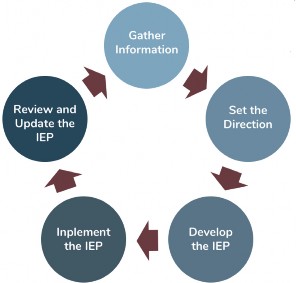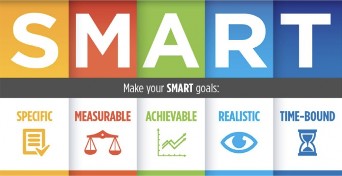A QUICK REFRESHER FOR FAMILIES PREPARING FOR THE NEW SCHOOL YEAR
BY LAUREN AGORATUS, M.A.
It's that time of year when many families are in IEP meetings to get ready for the next school year. Parents are part of the IEP team that drafts the IEP document; families should never be handed an IEP document to sign as if they had no important contributions to make.
PREPARING FOR THE IEP MEETING
There is an IEP checklist for parents to get ready for the IEP E meeting (see Resources). If any student is not in the Least Restrictive Environment (LRE), there should be a conversation on supports and services which will enable this transition to a more inclusive setting. Challenging behaviors can be a barrier addressed by a Functional Behavioral Assessment and putting Positive Behavioral Supports and Interventions into the IEP, known as a Behavior Intervention Plan. Transition-age students should participate in this process and attend their IEP meeting as well. It is important to remember that if transition-age students have not met their IEP goals, whether they are academic, functional, or in other areas, they should not graduate yet but continue to receive needed services up to age 21.

PRESENT LEVELS OF ACADEMIC AND FUNCTIONAL PERFORMANCE
This section is supposed to cover both strengths and areas in which the student needs improvement. Parents can start the meeting off on an optimistic note using a Positive Student Profile (see Resources).
IEP GOALS
An important component of IEPs are Goals and Objectives. The federal law, IDEA, only requires short-term objectives for students who will be participating in the alternate assessment. However, many states continue to require the use of short-term objectives for all students. Parents can find out their state rules by contacting their Parent Center (go to parentcenterhub.org).
Longer-term goals can be achieved using shorter-term steps to get there. "SMART" Goals are: •Specific •Measurable •Attainable•Relevant•Time-bound

RELATED SERVICES
Another important component in the IEP are the related services needed to help the student be successful. Services could include physical/occupational/speech therapy, counseling, social skills, sensory integration and consideration of assistive technology, among others. It may be helpful for families to compare last year's services to determine if more or less is needed for the coming year. Parents can find great information on related services in English and Spanish at parentcenterhub.org/iep-relatedservices. Parents can request an IEP meeting outside of the normal annual timeframe if needed. There are also "procedural safeguards" in place if parents and school districts disagree. If families need more assistance with the IEP process, free help is available from Parent Centers (see Resources) in their state.•
ABOUT THE AUTHOR: Lauren Agoratus, M.A. is the parent of a child with multiple disabilities. She serves as the Coordinator for Family Voices-NJ and as the central/southern coordinator in her state's Family-to-Family Health Information Center, both housed at SPAN, found at spanadvocacy.org
IT'S THE TIME OF THE SEASON : INDIVIDUALIZED EDUCATION PLAN RESOURCES
SPAN Preparing for the IEP Meeting For Parents: spanadvocacy.org/content/tools-family-educator-collaboration-iep-process For Students: spanadvocacy.org/content/tools-family-educator-collaboration-iep-process-0 Positive Student Profile spanadvocacy.org/content/positive-student-profile-0
POSITIVE BEHAVIORAL INTERVENTIONS AND SUPPORTS pbis.org
SMART GOALS understood.org/en/school-learning/special-services/ieps/how-to-tell-if- your-childs-iep-goals-are-smart
PARENT TRAINING AND INFORMATION CENTERS parentcenterhub.org/find-your-center